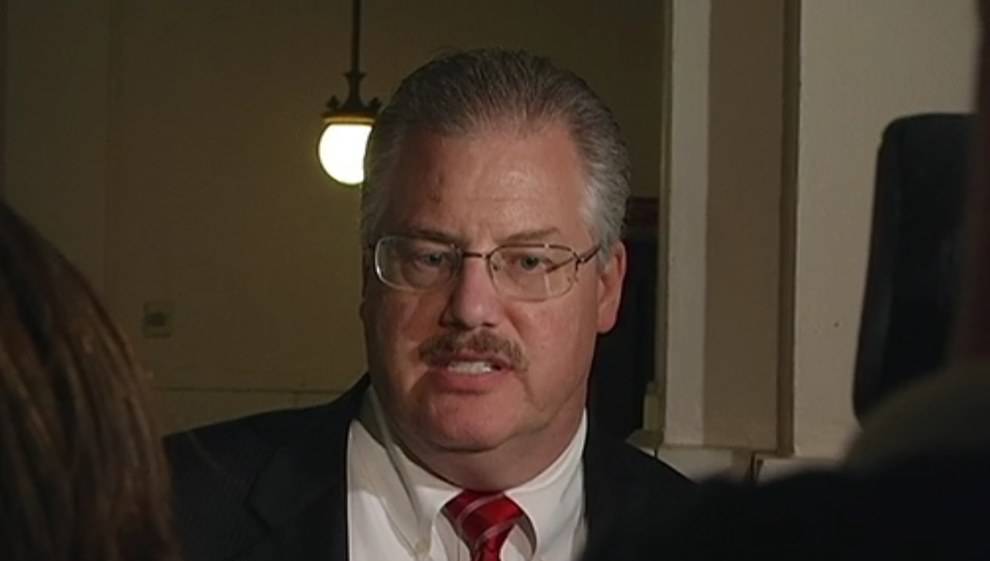10 Intriguing Facts About the Making of "Making a Murderer"
Everyone is talking about Making a Murderer - Netflix's new 10-episode docuseries following the real-life story of Steven Avery, a 53-year-old Wisconsin man who is currently serving jail time for a crime he may or may not have committed after previously spending 18 years behind bars for a sexual assault crime he did not commit. Here are 10 interesting facts about the filmmakers who beautifully captured Avery's story.

Making a Murderer co-creators Moira Demos and Laura Ricciardi were film students at Columbia University in 2005 when they saw a front-page story in The New York Times called "Freed by DNA, Now Charged in New Crime", about Steven Avery's complex and controversial murder trial.

They instead chose to focus on the facts of the trial and him being accused of a crime he may or may not have committed.
“What drew us to this story was Steven's status as an accused," Ricciardi told BuzzFeed. "In this country, people being accused of heinous crimes is unfortunately not that rare an event, but the fact that Steven had been wronged by the system, and was in the process of trying to reform the system and hold people accountable just raised so many questions."

At first, Demos and Ricciardi left New York for Wisconsin after finding out they were allowed to watch video footage from the courtroom. Right as they were ready to go back to New York, however, the police announced that Avery's nephew, Brendan Dassey, was being considered as a suspect. With that, Demos and Ricciardi decided the best way to gather information, interviews and footage was to relocate to Wisconsin, where they resided for a year and a half.

Demos and Ricciardi began their project in 2005. The New York Times reports that the filmmakers shot over 500 hours of interviews and visuals, along with recording another 180 hours of trials.

Ricciardi and Demos developed a close relationship with the Avery family, who gave them insight into Steven and his past. “We started to get to know Steven by telephone and we eventually started meeting him at the county jail, developing a relationship with him and gaining his trust,” Ricciardi told Vulture. The creators believe that it's just as much a family story as it is Steven's story.

Critics claim that the series brushed over Avery's past run-ins with the law in order to make him a more sympathetic character, but it was actually his flaws that made him such an interesting subject to the creators. “In some ways that’s part of the point,” Demos said. “If you want to push him away at the start and by Episode 10, you care about him, you’ve grown as a person and that’s really important.”

Ken Kratz, former Calumet County district attorney who prosecuted the case, said that the filmmakers ignored almost 90% of the physical evidence they used to convict Avery of the homicide.
“If you pick and choose and edit clips over a 10-year span, you’re going to be able to spoon-feed a movie audience so they conclude what you want them to conclude,” Kratz said. “That the theory of planted evidence ... is accepted by some people isn’t surprising at all. The piece is done very well, and I would have come to the same conclusion if that was the only material I was presented with.”

Both Demos and Ricciardi have weighed in on Kratz's accusatory comments.
“We tried to choose what we thought was Kratz’s strongest evidence pointing toward Steven’s guilt, the things he talked about at his press conferences, the things that were really damning toward Steven," Demos told the Wrap. "That’s what we put in. The things I’ve heard listed as things we’ve left out seem much less convincing of guilt than Teresa’s DNA on a bullet or her remains in his backyard.”
“Ken Kratz is entitled to his own opinion, but he’s not entitled to his own facts,” Ricciardi added. “If he’d like to put together a documentary and try to discredit us in some way, he’s welcome to do that. We’re not going to be pulled into re-litigating the Halbach case with him.”

Since he has no access to Netflix in prison and DVDs are also prohibited behind bars, Avery might not ever get to experience the story of his life that the filmmakers captured, according to Dean Strang, who represented him during the trial.

Since Making A Murderer's premiere, interest in Avery's case has immensely peaked. There's even a Change.org petition aiming to get President Obama to pardon Avery - the petition already has more than 110,000 signatures. In addition, an online hacktivist group Anonymous claims they have evidence that will exonerate Avery.
“What ultimately freed him [before] was newly discovered evidence where the technology advanced to the stage where you could test the DNA,” Avery's attorney, Robert Henak said. “In this case, we’re looking for technology to do the same kind of thing, to show that the evidence at the original trial really did not mean what the state was arguing that it meant and what the jury believed that it meant
